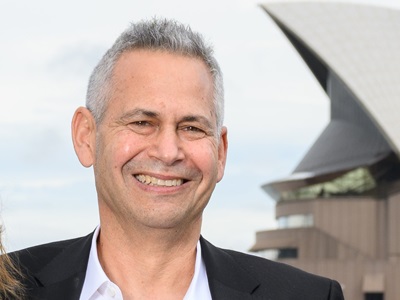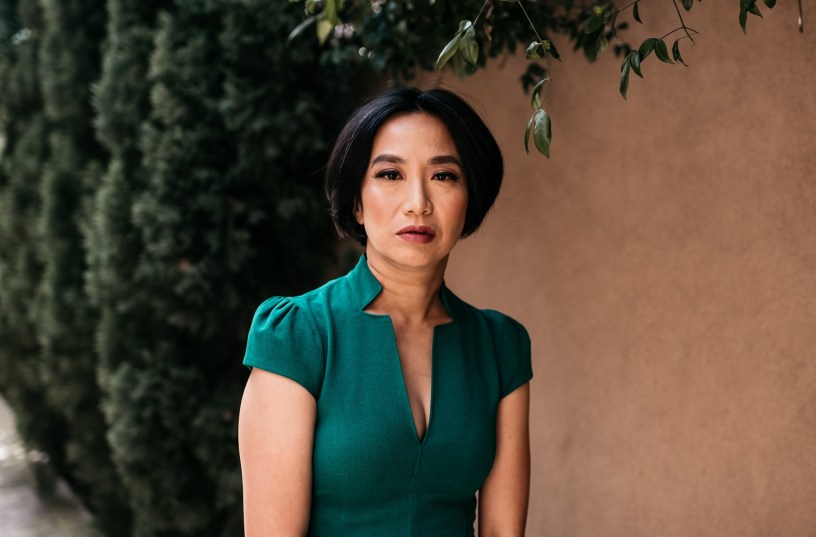There are calls for funding bodies such as Screen Australia to consider their support of production company Made Up Stories, due to the involvement of Steve Hutensky.
Hutensky spent nearly a decade working as an executive with Miramax during the late ’90s and early 2000s, serving as an advisor to now-disgraced producer and co-chairman Harvey Weinstein, who is currently serving a 23-year prison sentence for rape and sexual assault.
The concerns over whether someone with such links to Weinstein should receive Screen Australia funding have gained traction over the past six months on the back of She Said, a film that recounts the investigation from New York Times reporters Jodi Kantor and Megan Twohey into the claims of sexual harassment by Weinstein.
As reported by the pair, the former entertainment lawyer was “dispatched to London” in 1998 to negotiate a settlement with then Miramax junior assistant Rowena Chiu, who claims Weinstein attempted to rape her at a hotel at the Venice Film Festival, and Zelda Perkins, an assistant at the time to the company’s London office who confronted Weinstein about his behaviour and has also said she was subject to unwarranted advances from him.
Now a principal with Made Up Stories, where he works alongside wife Bruna Papandrea and Jodi Matterson, Hutensky’s producer credits include Penguin Bloom, The Dry, Nine Perfect Strangers, Pieces of Her, The Nightingale, and the upcoming Lost Flowers of Alice Hart, Strife, and Force of Nature: The Dry 2.
At the end of last year, Nine newspaper The Sydney Morning Herald published an article detailing the references to the lawyer turned producer in Kantor and Twohey’s original 2017 New York Times article and their 2019 She Said book, while noting Made Up Stories has received more than $5 million in support from Screen Australia since 2018/19.
IF has now learned that Chiu sent an email to Federal Minister for Women Katy Gallagher in January on the back of the article, detailing her experiences in the screen industry while questioning Screen Australia’s support of Made Up Stories and stating that she was “deeply concerned” that Hutensky had been able to further his career as a producer with financial support from the agency. It prompted a reply from Arts Minister Tony Burke, who noted with “grave concern” the issues raised and directed her to the Screen Australia board and chief operating officer Michael Brealey.
IF is not suggesting any illegal or unethical activity by Hutensky, nor that he knew the extent of the allegations against Weinstein. As Kantor and Twohey wrote in She Said, Hutensky has stated that the dual settlement in which he was involved “was the only sexual assault claim against Weinstein of which he was aware and that the producer insisted to him that the encounter was consensual, and that he was settling the matter to protect his marriage”.
Screen Australia did not comment when asked about the correspondence with Chiu, but IF understands the agency is undertaking an independent investigation via an external party.

Chiu describes Hutensky as present throughout the negotiation of her 30-page NDA which, according to her 2019 NYT op-ed, included terms that prevented her from speaking with family and friends and made it “extremely difficult to work with a therapist or lawyer, or to aid a criminal investigation”. While quite usual at the time, there is now significant controversy around such terms, with various legislatures even considering banning oppressive NDAs.
Reflecting on her experiences with Miramax, Chiu said she was part of a group of women that “didn’t get to make a start in film”.
“I won’t ever know whether I could have made it as a film producer because I wasn’t given a platform to compete,” she said.
For Perkins, who moved to Guatemala for five years after signing the NDA and has since gone on to testify in front of the British Parliament about her experiences at Miramax, there should “absolutely be an acknowledgement” from anyone closely involved in the management of that company.
“I don’t understand how anybody can move forward and not acknowledge their involvement in something that has really changed, culturally, the recent history of the world,” she said.
Made Up Stories has no shortage of upcoming projects, with season two of Stan series Wolf Like Me in post-production and Addition, the debut feature film from writer Becca Johnstone and director Marcelle Lunam, which was awarded production funding from Screen Australia last August.
Hutensky has been approached to comment on the matter but has yet to respond.
Director and writer Katrina Irawati Graham was among those in the domestic industry to speak out about the allegations against Weinstein soon after they came to light.
In 2018, the same year she helped co-found national advocacy body Women in Film and Television (WIFT) Australia, Graham penned an op-ed for IF about how the subsequent #MeToo movement had led an “overwhelming shift in conversations around gender, sexual harassment, and diversity”.
More than four years later, WIFT International board member said there was still a “massive dissonance” between the experience of survivors going forward and that of those in power.
“The survivors didn’t do anything wrong either, but there is still harm,” she said.
The Miramax scenario has been a catalyst for a broader industry discussion, as noted by Deakin University lecturer for employment relations Amanda Coles.
Coles was a senior and the lead author of last year’s Australian Cinematography Society’s A Wider Lens report, which found that bullying and discrimination were commonplace within Australia’s camera departments, and sexual harassment “routine”.
Describing the Miramax situation as a “crisis of ethic proportions”, Coles said Weinstein was a “symptom” of a bigger problem, but noted the situation presented a “real opportunity” for systemic change.
“I think Screen Australia has bigger questions in front of it than whether we should fund Steve Hutensky as an individual because he didn’t do anything illegal,” she said.
“I think that it is up to Screen Australia to sit in extended dialogue with other major screen agencies like the BFI, which is undergoing criticism for systemic racism, or Telefilm Canada, which has opened The Black Screen Office to respond to claims around exclusion and harassment and to hold themselves accountable because it’s public money.”



